Liz Truss: Six things from Wales in the new PM's in-tray
- Published
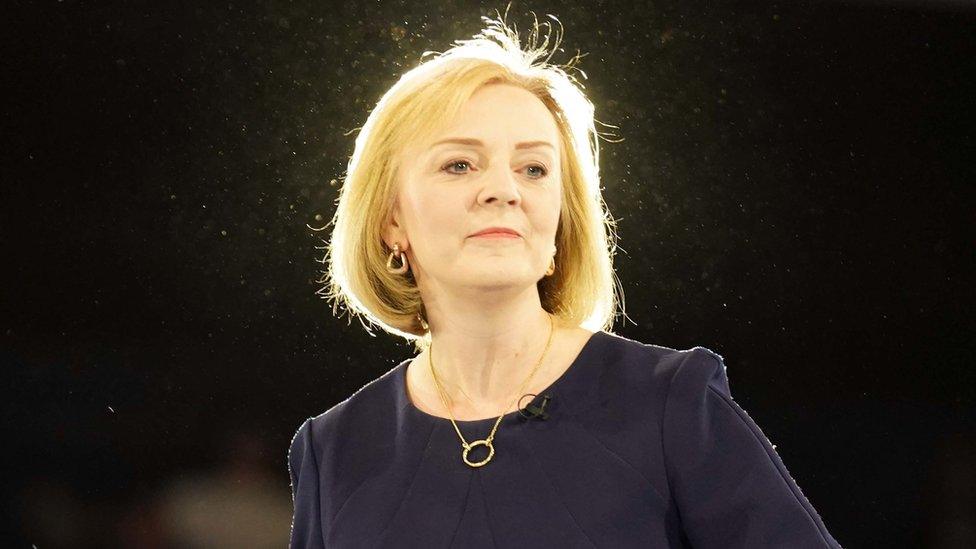
Liz Truss faces a long to-do list as she joins Downing Street
Boris Johnson left Downing Street with work unfinished and promises unfulfilled.
The abrupt termination of his reign has left a long to-do list for his successor.
There are some big decisions affecting Wales that await Liz Truss and her new government, ranging from energy costs, to what to do about steel and nuclear.
Soaring energy costs
Even during the record-high temperatures of the summer, millions felt a chill run down their spine as they contemplated an expensive winter.
Some warn Wales is particularly exposed to soaring energy costs, external because it has so many old, draughty and poorly-insulated homes.
The crisis must be "the number one priority" for Liz Truss, says the Welsh Tories' Senedd leader.
Few would disagree.
As soon as her victory over Rishi Sunak was declared, First Minister Mark Drakeford was on Twitter asking Ms Truss to work with him to tackle the cost of living crisis.
Funding has already been announced by both their governments, but it is unlikely to be enough for many.
As in the rest of the UK, Welsh households and businesses wait to see how the new PM will respond.
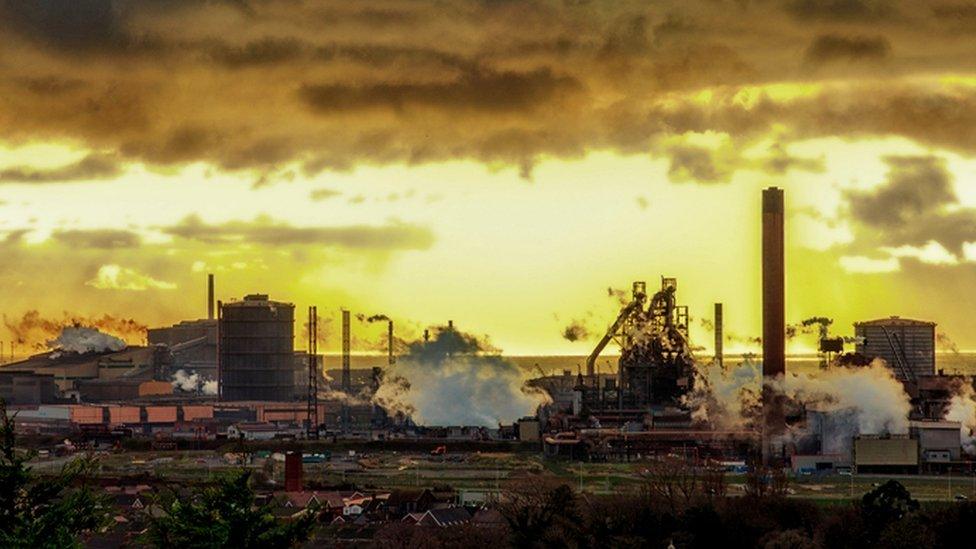
The owners of Port Talbot steelworks have asked for a big government subsidy to keep it open
Big calls on old and new industries
Not for the first time, Port Talbot's massive steelworks faces an uncertain future.
It could close unless the UK government guarantees to subsidise a mammoth reduction in carbon emissions, say owners Tata.
That warning came in the dying days of Boris Johnson's premiership.
Team Truss has inherited the task of negotiating with Tata.
It must also take a vital - and postponed - decision on whether to allow a Chinese company to buy Britain's biggest semiconductor factory near Newport.
And it will be keen to show the much-heralded freeports can live up to the hype. Bids have been invited to establish a freeport in Wales.
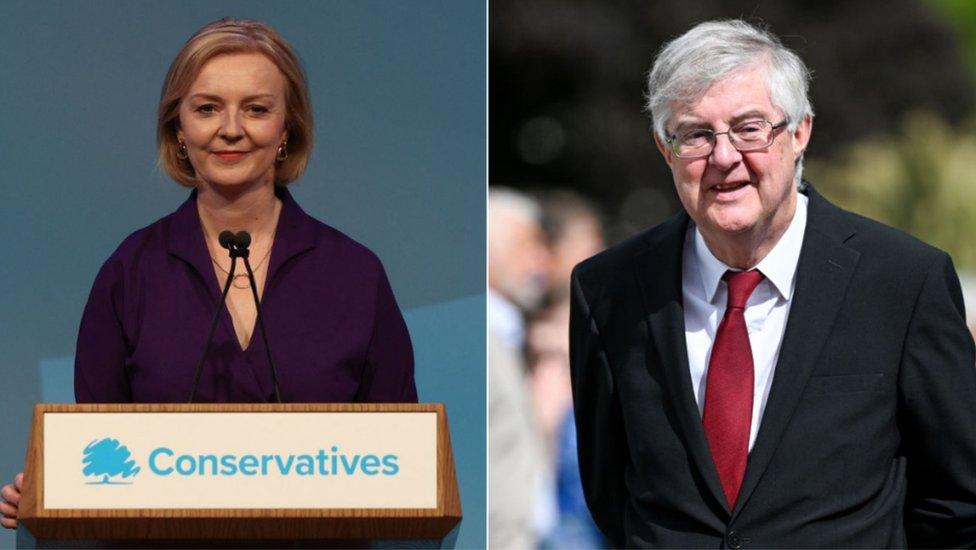
Liz Truss criticised Mark Drakeford during her leadership campaign
Wales-Westminster strife?
When courting the Conservative grassroots, Liz Truss called Mark Drakeford a "low-energy version of Jeremy Corbyn".
Jibes like that don't ruffle feathers. They're a familiar feature of devolved politics.
But relations between the two governments have definitely been strained by Brexit and the pandemic.
Meanwhile, the Welsh government is making the case for devolving powers over criminal justice, external.
They were told that would not happen under the last prime minister - and things are unlikely to change under the new one.
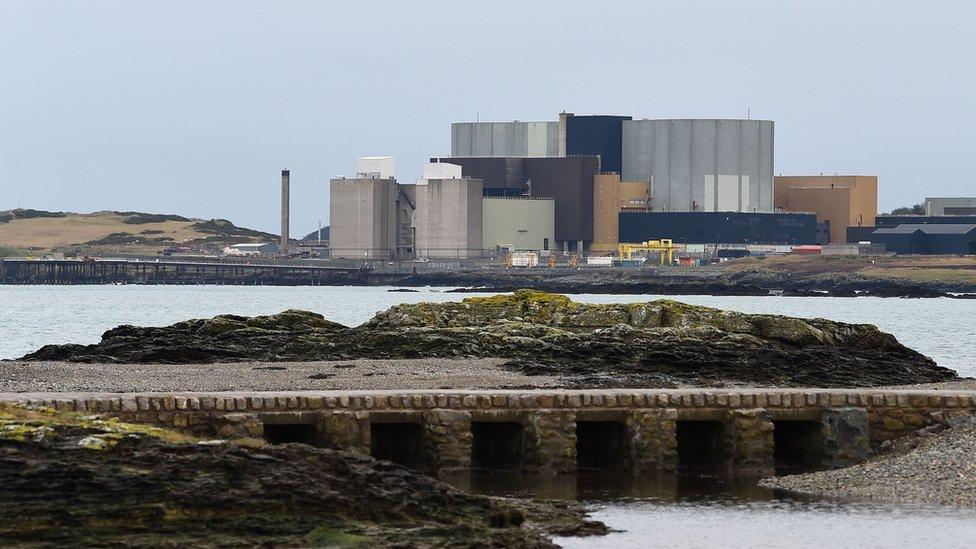
Boris Johnson said a new Wylfa nuclear plant was "going to happen"
Nuclear
Boris Johnson vowed to build a new nuclear power station at Wylfa, on Anglesey.
It is a huge commitment, made by Mr Johnson during an election-campaign visit in April.
A couple of months later, then Welsh Secretary Simon Hart, external made clear that "there is a long road ahead" before this can actually happen.
Wylfa, he said, "is probably near the top of the list of potential [nuclear] sites".
Mr Johnson also talked up the revival of nuclear power at Trawsfynydd and the "colossal opportunity" to build off-shore wind farms.
Ms Truss has hinted at having infrastructure ambitions of her own. She told a hustings in Cardiff last month that she backed building the M4 relief road, which was cancelled by Mark Drakeford in 2019.
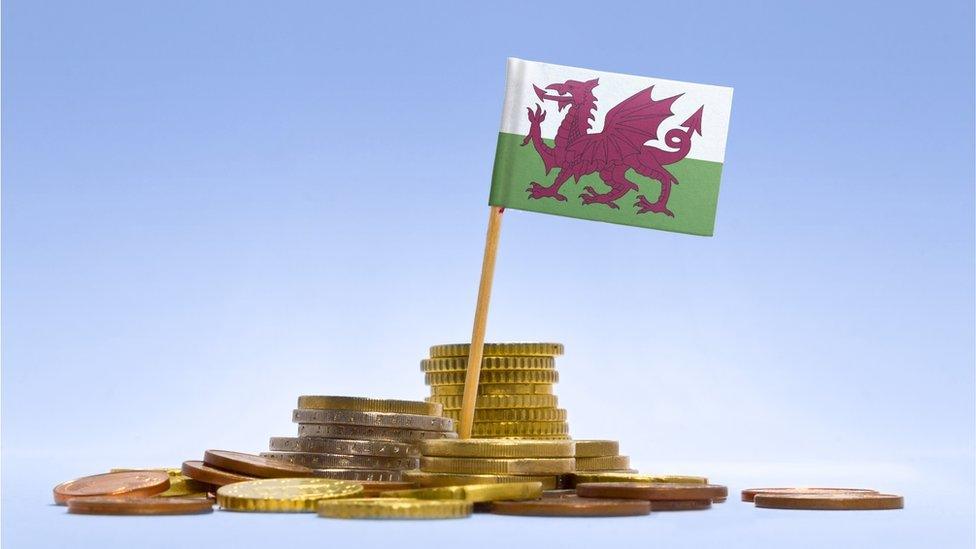
Boris Johnson promised to "level up" all parts of the UK during the 2019 general election
Levelling up
It was Boris Johnson's flagship policy - rebalancing the economy and spending money on places where people felt left behind.
As part of levelling up, Wales was promised £585m for local communities from the shared prosperity fund.
It is supposed to replace the billion in EU money that poured into Wales.
But opponents say it's not enough and the Welsh government complains about being sidelined from spending decisions after Brexit.
Some doubt levelling up will be such a high priority for the new PM.
Nevertheless, Tory MPs will want to show it's all going according to plan before the next election.
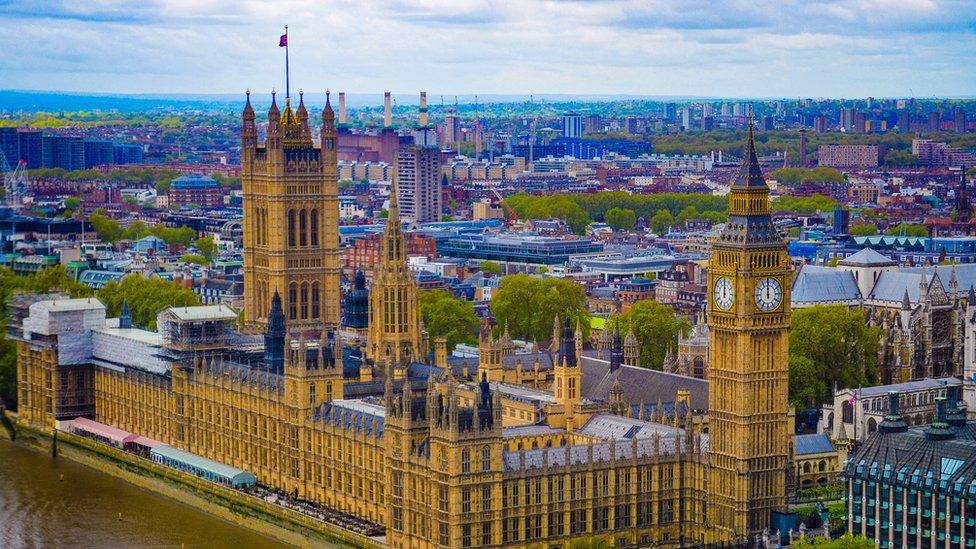
It is likely MPs will be elected on different boundaries next time around
Election on horizon
Deliver on all of the above and Liz Truss just might restore the Welsh Conservatives' fortunes in time for the next general election in 2024.
The party's last encounter with the electorate left it reeling.
Conservative councillors even lost control of true-blue Monmouthshire to Labour.
Opinion polls in the summer foretold of a bleak outlook for many of the 14 seats won by Welsh Tories in 2019.
And there's a new complicating factor for them to contend with - it's likely that the next election will be fought on different battle lines, as constituency boundaries are being redrawn.